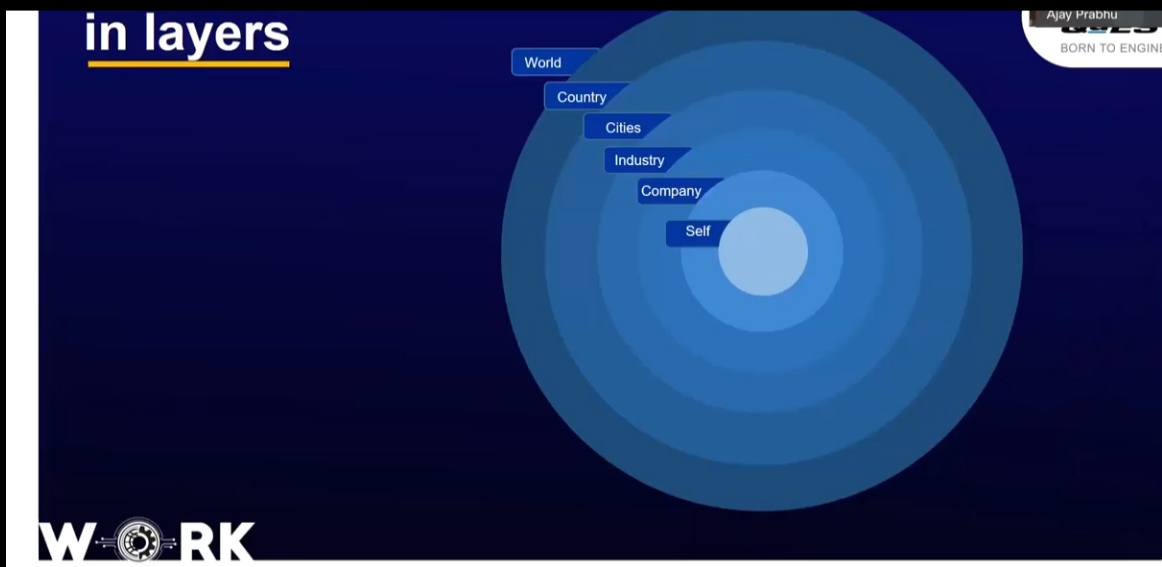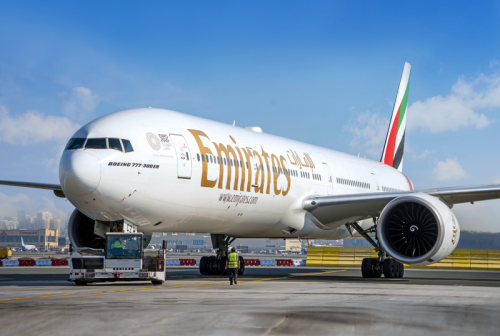Dr. Ajay Prabhu, President of Technology Services at Quest Global, took a deep dive to explain the impact of Covid-19 pandemic on the work culture and society in his keynote address on the final day of the event at Bengaluru Tech Summit 2020.
Evolution of Workforce Culture from Man to Machine
Speaking about the evolution of work from manual to mental labour, Dr. Prabhu highlighted the various phases of labour transformation that led to the birth of industrial revolution (mechanisation), silicon revolution (automation) and digital revolution (digitisation).
“Starting with the steam engine and its gradual transformation into a mechanised version saw the birth of industrial revolution,” he added.
He further explained how the electronic control systems took over man-made monotonous jobs and handed them to machines to mark the era of Silicon revolution across India and the rest of the world.
Dr Prabhu also pointed out how data collected from machines has helped in taking cognitive decisions by humans, which led to the birth of Digital revolution.
Referring to an example of ordering a pair of shoes from an online showroom, Dr. Prabhu details how the automation process could complete the entire process of placing the order, registering the exact shoe size details, and shipping the product to the customer, besides accepting the payment online with just a few simple clicks as opposed to doing the same task manually.
“In the future, we are going to have more of an experience-oriented economy as this evolution of work continues through three transformative stages from agriculture to industrial and service-oriented economy,” he explained.
Covid-19-induced Opportunities
The trend of reducing hard work has continued through the challenging times of Covid-19 pandemic as Dr. Prabhu aptly puts it by saying that it has accelerated the trend with “ease-of-work” across the global workforce. This especially holds significance as “work-from-home” and “work-from-anywhere” concepts are gaining momentum with rapid adoption in schools, courts, audits and technology works.
Citing a typical example of COVID-19-induced transformation in workforce culture, Dr. Prabhu revealed:
“In a very complex engineering workforce like Quest Global, we have 75 offices in 15 different countries. And we work in a very complicated domain such as oil and gas, aerospace, automotive which have their own quality systems.
“And this year our quality audit which every year used to take up to a month where the auditors would travel to many of our offices. Those are now done remotely. This enabled the auditors to spend a lot more quality time going through our quality management system which would have otherwise been impossible just a year ago,” he added.
Covid-19-induced Challenges – Business Continuity and Crisis Management Put to Ultimate Test
Highlighting the challenges faced by the IT and tech industry, he points out that a massive workforce comprising of over 4.5 million engineers had to be shifted in overnight period when the pandemic-induced lockdown happened in India to work-from-home.
As revealed by Dr. Prabhu, some of the challenges that were faced by the IT and Tech industry at large, are listed below:
- Providing Secure VPN Connectivity to client networks
- Remote access to lab, command centres and on-demand digital resources
- Round-the-clock access to technical/engineering support
- Heroic actions of the IT executives and support staff in adopting to the new normal at such short notice
“Bengaluru, of course had to play a major role as it led from the front. Because nearly 40% of the entire IT work in India happens from just this one city, Bengaluru,” he added.
Dr. Prabhu also commended the collective effort of the Indian government and the citizens as it resulted in the success of embracing this enormous change in our work culture, during the Covid-19 pandemic.

He also underlined the fact that the work culture has many layers of influence from individuals to the company, company to the industry, industry to the cities, cities to the country, and from country to the entire world.
Covid-19 Driven Benefits to the Workforce
Dr. Prabhu highlighted a slew of Covid-19-influenced benefits to the nation’s workforce as it enabled better collaboration among the knowledge-workers, accelerated automation and digitisation, boosted opportunities in outsourcing and offshoring jobs, reduced infrastructure costs (as business and work could run remotely), and pushed talent acquisition with jobs and better incomes to smaller cities.
“Several of these factors actually resulted in rapid slowdown of urbanisation with opportunities for greater flexibility at work without compromising the cost efficiency and pushing the impetus to launch the proposed ‘100 Smart Cities Program’ in the near future,” he explained.
Improved Quality of Living
Dr. Prabhu also highlighted the quality of living in urban areas and metro cities has shot up with the advent of Covid-19 pandemic due to several factors like reduction in commuting times with less traffic congestion, reduction in CO2 emissions and carbon foot print in atmosphere, and a better ecosystem for new companies as well as talent to set up base in the city owing to its superior quality of living.
He also pointed out that the ITES industry has benefitted immensely in the aftermath of Covid-19 pandemic as rapid digitisation has led to greater productivity, return to work of women, reduced attrition due to worktime flexibility and flexible workforce resulting in flexible costs.
On the flip side, as Dr. Prabhu mentions in his keynote, the ITES has faced major challenges including the cybersecurity threat over a distributed network and simplifying of necessary labour and company laws to enable ease of doing business in the changing work culture.
Finally, Dr. Prabhu touched upon the new challenges faced by working individuals such as networking inability, family & social pressures, emotional health, work-life balance, personal productivity and skill development.
“The secular trend of making the work easy will continue. The Covid help does accelerate in the ease of working and we must now think about how much of the acceleration we need to embrace. The pace of urbanisation will slowdown and make the cities more attractive for new talent and investments to come in. Cities will see better growth with the ability to build new infrastructure in a better timeframe as it was not possible earlier,” he concluded.





